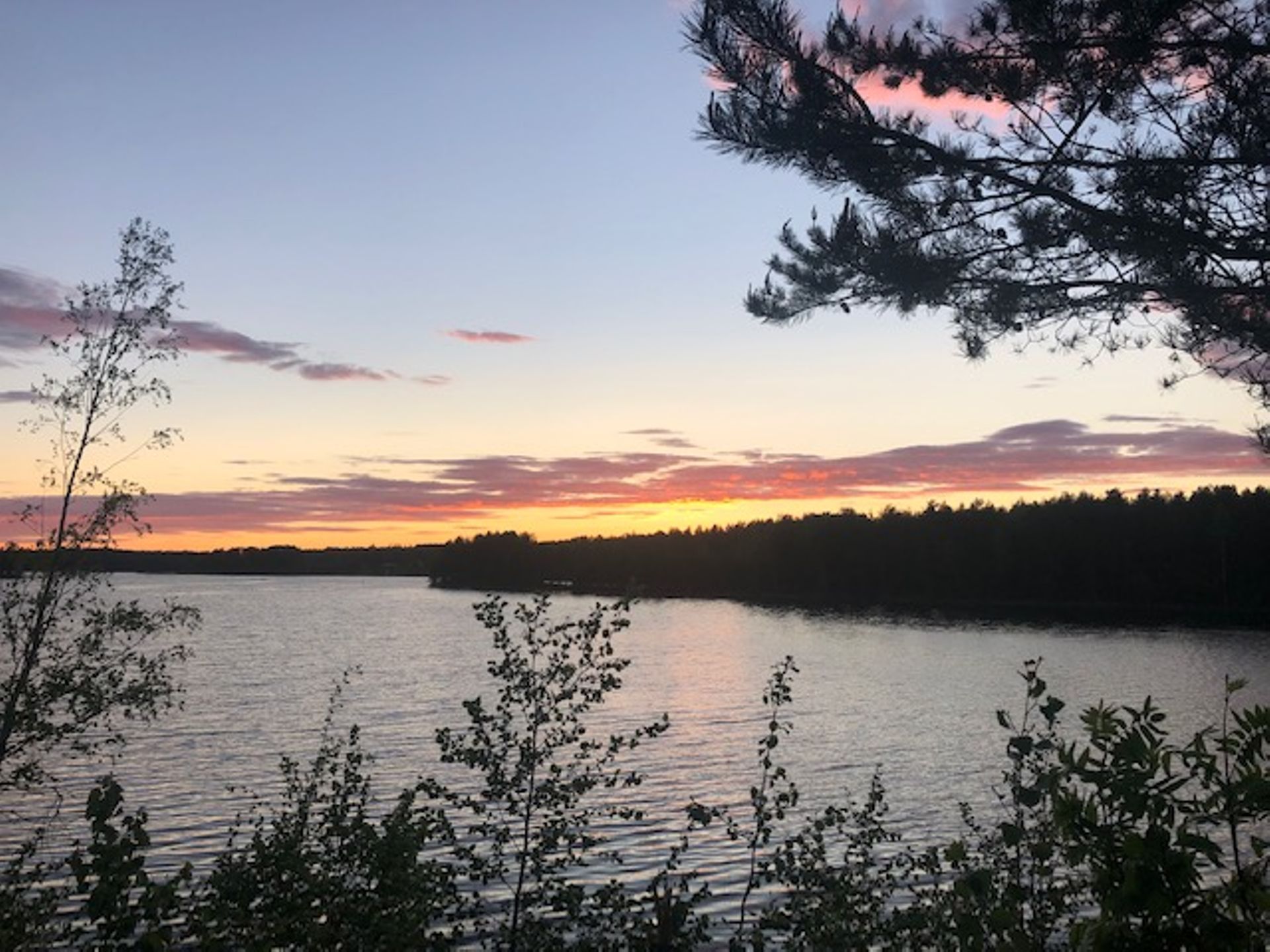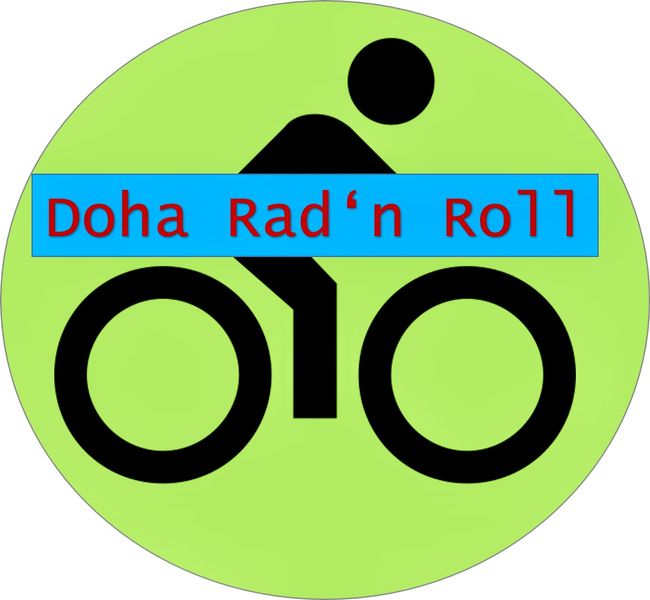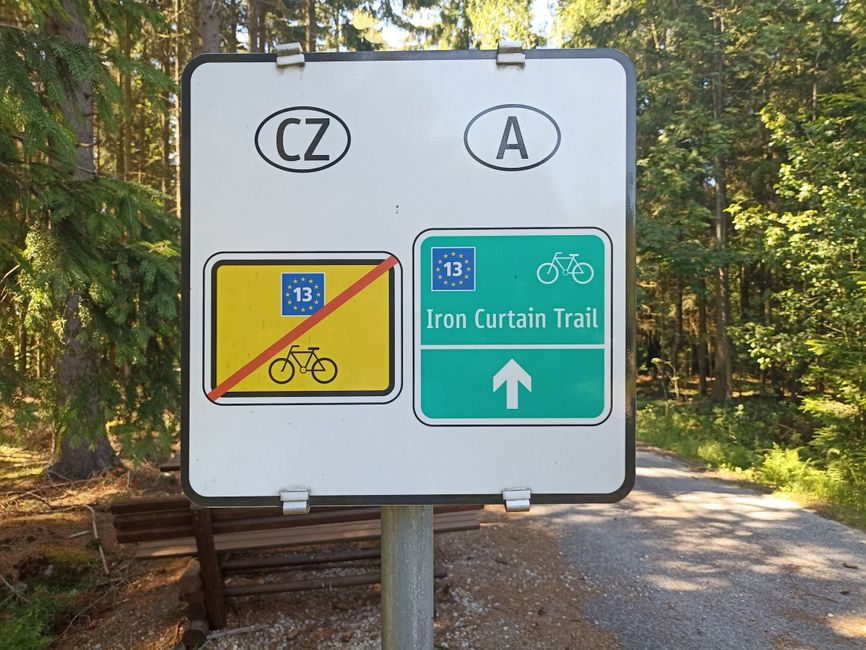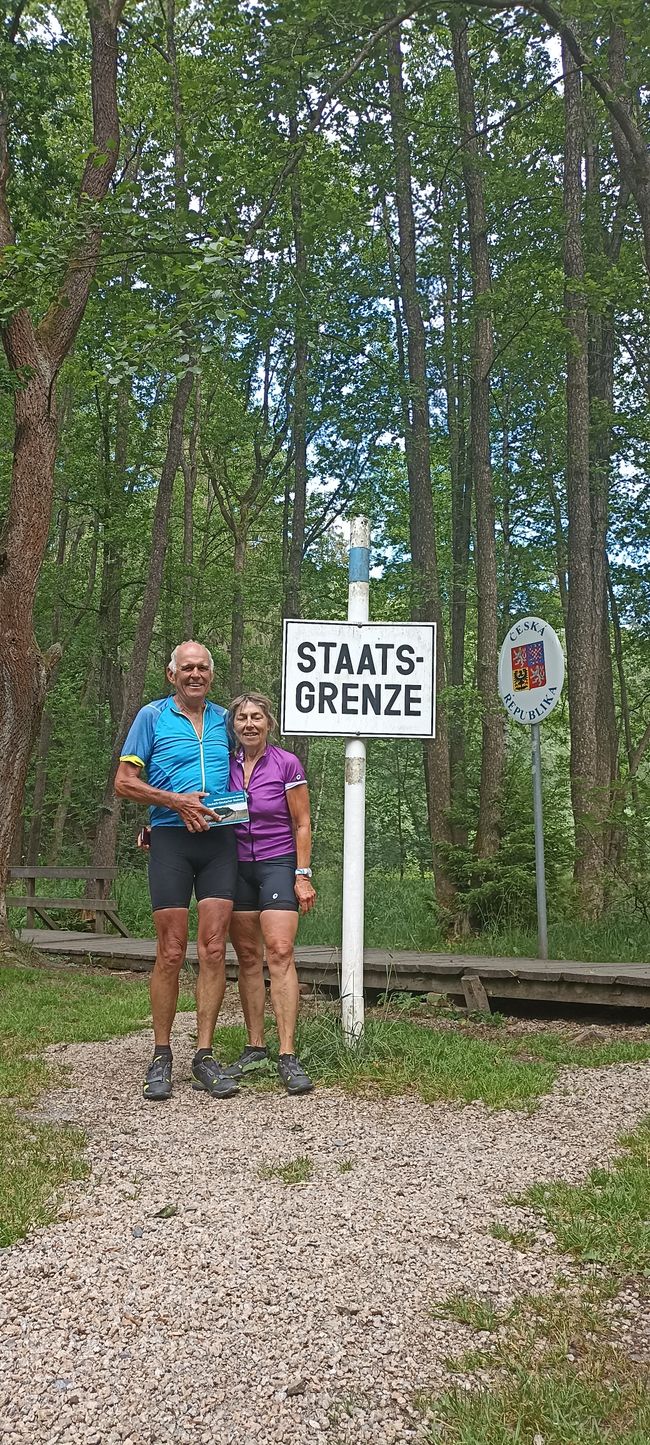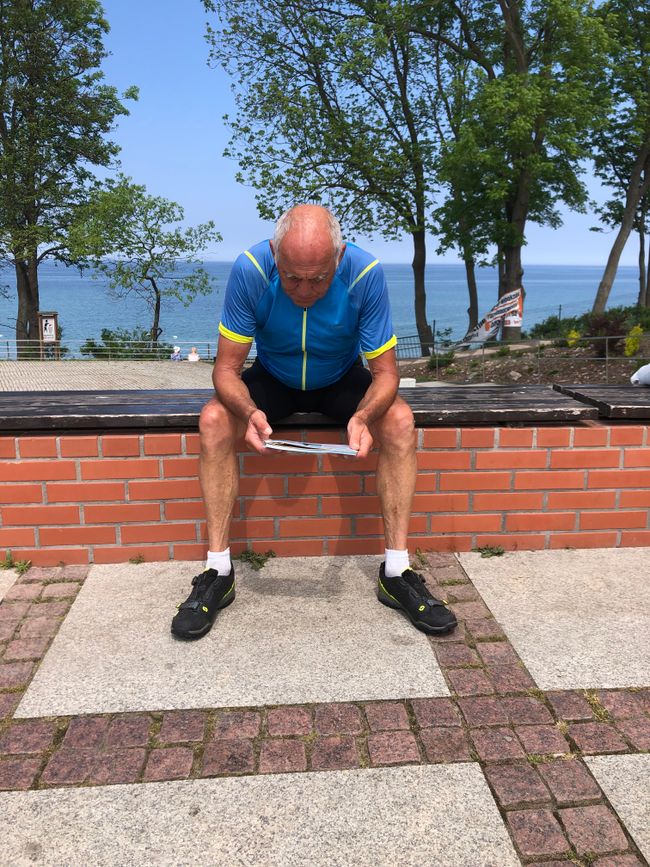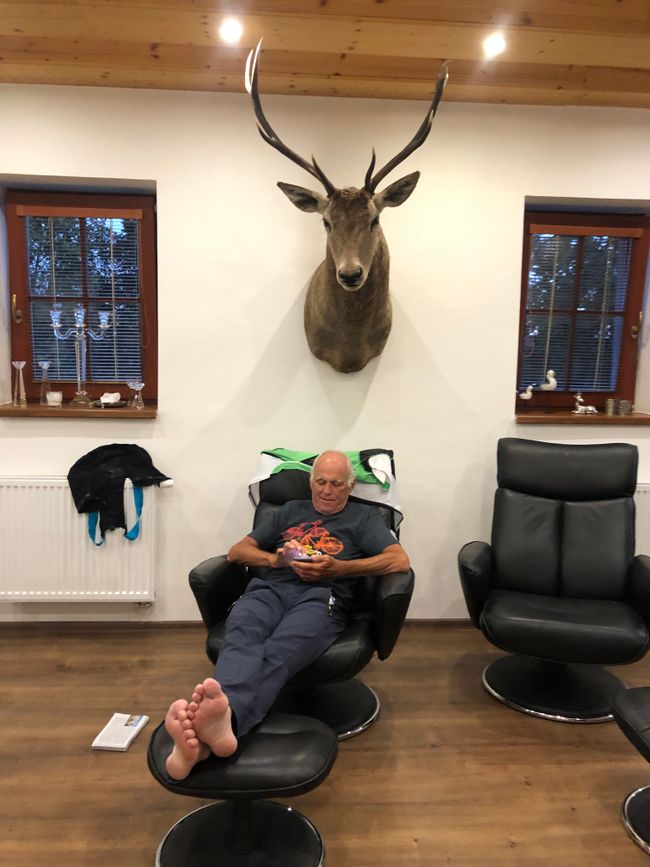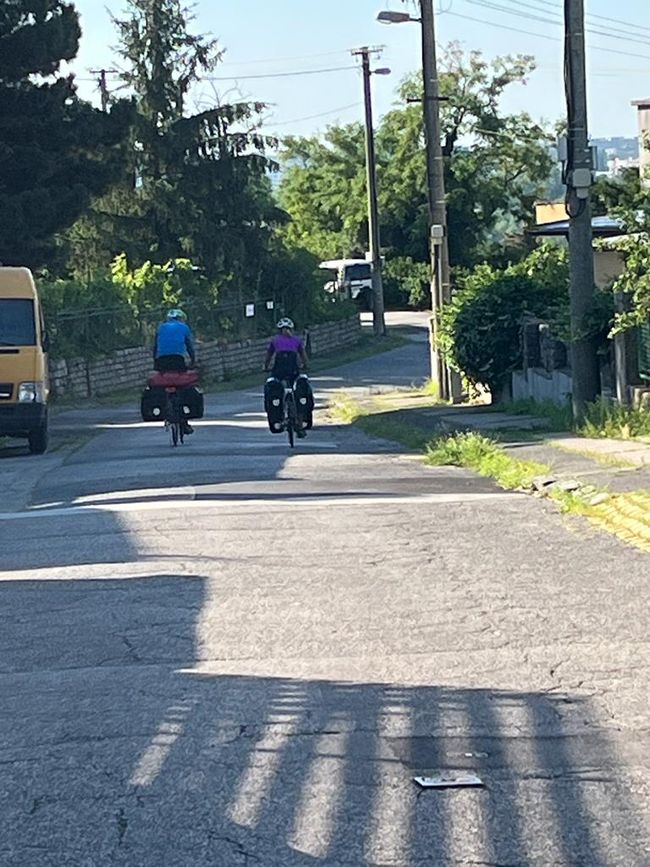Conclusion after six weeks and 3600 km
ተሓቲሙ: 26.07.2022
ንዜና ሳብስክራይብ ግበሩ
After our return, each of us drew a conclusion for themselves.
Dominique: It has been almost a week since we returned home, and everyday life has almost established itself. My thoughts often wander back to the past six weeks on the bike. Many images, episodes, encounters, or stories of people come to mind. At night, I often dream of searching for bike paths or riding. After our return, I was often asked which place I liked the most or which event was unforgettable. I can't answer that easily. Our plan to ride the entire length of the former Iron Curtain and the experiences of this year's tour are special and unforgettable as a whole. Our idea of feeling and experiencing this border, and biking and experiencing how long and historically burdened practically every section is, is an unforgettable experience for me. When I had to struggle sometimes on the steepest climbs, like on the endless gravel paths, I had to think of the people who tried to escape under the worst conditions, to save their lives and leave their family and friends behind. My complaints were embarrassing in comparison. I wanted to continue riding against forgetting! Richard von Weizsäcker put it aptly: 'Whoever closes their eyes to the past will be blind to the present.' (Harald has already mentioned this in the blog). I find the quote so fitting. We wanted to engage with history on this journey, even though the facts from the war years and during the division of Europe are often burdensome, sad, incomprehensible, and brutal. And today in 2022, we were able to ride quickly and easily between borders without being controlled or hindered. It reminds us once again that much effort is still needed to maintain this peace project called Europe. We can all watch how this idea is being threatened at the moment.
But I also remember the nature, the different landscapes: wheat fields reaching to the sky, pine forests in Poland, lonely fir forests in Bohemia, river paths in Germany, forest dieback in the Harz Mountains, plains in Hungary, mountains in Slovenia. And last but not least, our bikes, which have endured it all without hassle. Our daily routine was also special, giving us stability. In the morning, we didn't know exactly what to expect and how many times we would get lost. I started cycling, and when the first climb came and the sweat started flowing, I was back in cycling mode and knew that all I had to do all day was pedal, trust my body, drink, absorb the surroundings, plan breaks, look for a place to stay overnight, have a snack, enjoy coffee and cake on good days, meet people, let my thoughts run free, curse, doubt, laugh, be exhausted, and look forward to a good meal, a beer or two, and a bed or sleeping bag in the evening. I am eternally grateful to Harald for tirelessly writing in the blog or planning the next day on Google or Komoot while I read and soon fell asleep. I couldn't ask for a better travel companion...
Next year, we will continue to the Black Sea. I am looking forward to it!
Harald: We made it, we are proud and happy. More than 3000 km on the EuroVelo13/Iron Curtain Trail to the Hungarian-Slovenian border and more than 500 km in Slovenia. When we started in Gdansk, we could hardly dare to mention our destination - it was so far away. What accompanied us, what was particularly important, what remains?
'Only someone who moves their bike can see the sun reflecting in the spokes.' (Hans Blickensdörfer, legendary journalist who regularly wrote about the Tour de France). We moved our bikes every day, not too little, and we saw a lot of sunshine in multiple ways. We really didn't have a rainy day on the bike. We got soaked in a thunderstorm just before Gmünd and were completely drenched for an hour, and we rode in light rain with rain gear three times for a short period. It rained almost all day in Bratislava, but we had our first rest day after four weeks of cycling. There were some nights when it stormed and rained, but we slept well and comfortably in hotel rooms. Our physical health can also be described as extremely sunny. In the more than six weeks, Dominique needed ointment and bandages only once after a fall, otherwise our bodies endured everything without complaints. The climbs with the luggage on rough terrain in the middle mountains of the Harz, Rhön, Franconian, Bavarian, and Bohemian Forests pushed us to our physical and mental limits, as we described in the blog. Even today, the memories of the Bohemian Forest command the highest level of respect from us and cause shortness of breath. We had no accidents, with two small exceptions. Once Dominique got caught on a pedal in a narrow spot near a bench and fell onto a pedestrian, but both were uninjured except for the scratch mentioned. I lost my balance with the bike while looking for shelter during heavy rain before Gmünd and rolled into the ditch without consequences. That brings us to our bikes - we have already sent a thank-you letter to the Velo Gellert Team because our bikes were excellently prepared. Nothing, absolutely nothing wobbled, brushed, or came loose. Despite many kilometers on badly drivable paths, we hardly had any punctures, especially with the heavy luggage. We often discussed what we didn't need. Ultimately, we could have done without a few items of clothing, but the weight savings would not have been significant. What we had with us was the equipment of our living and sleeping room for six weeks. This time it was worth taking the tent, sleeping bag, and mat with us because we spent more than a quarter of the days camping, which also suited the style of travel. However, I sometimes had the feeling that someone was still hitchhiking on skates at the back. Dominique lovingly and dedicatedly organized our stays at the campsites, from setting up and dismantling the tent to preparing breakfast. All for the 'romance of camping'! Even a pole break couldn't change that, thanks to a spare part.
We planned the individual stages at home with the help of the Bikeline guidebook and some information from the internet. In the first few weeks, we mostly stuck to the plan and averaged a little over 100 km per day. In the end, it was an average of about 95 km per day on the Iron Curtain Trail. We also had a navigation device for orientation, but I couldn't always plan the route along the border with it. So we often found ourselves at a junction and were unsure which way to go. This sometimes led to disagreements between the two of us about the right way. Theoretically, there is also signage, especially when you are on a EuroVelo route. One might think. After being heavily reliant on the navigation device in Poland a few times, we thought that from Lübeck, there would be a perfectly signposted German-German border path. How naive one can still be despite many bike tours! It is simply catastrophic in Saxony-Anhalt and Thuringia. In some places, there are signs for four different bike routes that run on the same route, and suddenly everything disappears, only to reappear ten kilometers later out of nowhere. It is embarrassing! The fact that it can be done differently is shown by the examples of Hesse and then Austria. At first, it was a shock that someone stole our navigation device at the campsite. But thanks to Komoot and a subscription for €20, which allowed us to use planned tours offline, we managed very well.
Just like on our tour through Finland and the Baltic States, the support in the form of comments, emails, and WhatsApp messages was incredibly important to us. Every message made us very happy and affirmed our actions. The absolute highlight was the meeting with Lothar and his two-day support. There is probably no better meeting point than Point Alpha for something like this.
Having an additional contact person for two days was good for both of us because you can easily imagine that such a long time together is a challenge for a relationship. You discover special qualities of your partner anew or amplify them. I mentioned our arguments about choosing the right way. In addition, some daily tours were too long or too exhausting for Dominique. One day, I said that we had to stop here: the stages were too long, the sun too hot, the paths too bad, and the climbs too steep. I also had the feeling that Dominique couldn't really laugh anymore. For me, this was one of the worst things that could happen. We addressed it and approached the rest of the journey in a new way. Otherwise, we wouldn't have been able to face the efforts that still awaited us together. It should be clarified that Dominique is very fit and handles all the climbs with more strength and speed than I do. I am now following behind (age-appropriate), just as I did in Finland, which is not just due to the weight of the luggage and the bike, as we experienced on Pokljuka. The difficult part for me was that Dominique hardly wanted to accept this fact. In addition, her 'loud thinking' meant that there were many questions I couldn't answer. A good example of this happened in the Austrian-Czech border area on the way to Vyssi Brod when we still had 20 km on a high-altitude path until the destination. We had been steadily descending for a while when Dominique asked, 'Does it only go downhill from now on?' Of course, there were two really tough climbs left.
It is clear and undisputed that Dominique is the only person I can plan and carry out such an undertaking with. She also re-engages in the next day after exertion, is interested in new impressions, history, and encounters, and can laugh again after great efforts, especially in the evening.
We encountered people along the route in their everyday lives. They showed themselves to be interested and friendly in almost all countries without exception. They willingly told us about their experiences in the GDR, and everyone mentioned being locked in with a travel ban, restrictions in the border area, and the feeling of being constantly monitored as their worst memories. Conscripted soldiers reported on the constant fear of having to shoot a refugee while serving as border guards. The story of Klaus Müller particularly describes the problem of being locked in. As a student, he was impressed by the travel narrative of Johann Gottfried Seume (compulsory reading in the GDR), who traveled from Saxony to Sicily and described it in his 'Spaziergang nach Syrakus' ('Walk to Syracuse'). The journey from Saxony to Italy was unthinkable for a GDR citizen in the 1980s, especially not for someone like Klaus Müller who had refused military service. And who treats himself to only working as a waiter in the summer and is satisfied with that. But he has a dream: Klaus Müller wants to travel to Italy, following Seume's route. His unusual plan is: leave, see Italy, return. Müller plans alone and does not want to destroy security facilities - hoping for readmission and a lenient judgment. In 1981, when Müller was 40, he began preparations. He looked for work on the Baltic Sea coast, joined a sailing club, and bought a small sailboat. He wanted to sail from Hiddensee westward towards the Danish island of Møn. At night. Money and luggage were sent to the West by a Japanese interpreter. Only in 1988 were all conditions such that he dared to go to sea on his sailboat. Müller's plan worked: the northeast wind blew him to Denmark, and he docked there the next afternoon. In the evening, he took the ferry to Lübeck-Travemünde and then stayed with an acquaintance in Hamburg. In the following months, Müller traveled through the Federal Republic, Austria, and Italy. However, according to his own statements, he always planned to return to the GDR. Therefore, in February 1989, he re-entered the GDR and was only sentenced to a fine after a short stay in the re-admission camp in Röntgental. Friedrich Christian Delius processed Müller's journey in 1995 in his book 'Der Spaziergang von Rostock nach Syrakus' ('The Walk from Rostock to Syracuse'). (Recommended reading) Like Müller, most GDR citizens would probably have returned after a trip to the West. But the responsible politicians did not trust their citizens and started building border fences with additional self-shooting systems and landmines as early as 1952. 30,000 border guards were deployed to secure the 'death strip.' With the sudden 'Aktion Ungeziefer' ('Operation Vermin'), thousands of families considered politically unreliable were forcibly resettled from the exclusion zone to the interior of the GDR and then the historical villages in the exclusion zone were completely destroyed. We already knew a lot about the system of border security, surveillance, and control by the GDR regime. However, through our experiences on-site at the border museums and memorials, we were directly confronted with the extent of this inhumane system, leaving us speechless and moved to tears several times. The so-called 'Schießbefehl' ('shoot-to-kill order') was in effect until April 1989, meaning that even fatal shots were fired to prevent escape. Almost 900 refugees were killed by border guards at the German-German border. The basic course on recent German history, which was an important part of our journey, also included encounters with German National Socialism, whose inhumane ideology, in our opinion, found a continuation in the GDR very quickly. We were shocked by the massacres committed by the SS shortly before the end of the war in Rechnitz and Deutsch Schützen. Senseless, without any understanding of human fate, the Nazis degenerated into murder animals. The same applies to the death marches from the Flossenbürg concentration camp, the Burgenland border area, and parts of Styria, where the prisoners were forced to build the Southeast Wall. A high number of prisoners were mistreated and killed during the death marches. I remember the quote from our former Federal President Richard von Weizsäcker, which was posted at the cemetery of the demolished village of Billmuthausen: 'Whoever closes their eyes to the past will be blind to the present.' There were times when there was great hope that we would not close our eyes. Lately, hope has been suffering greatly. During this journey, we gained some hope because, after all, it has been possible to overcome the dividing borders in Europe to a large extent, and we had the feeling that Europe still lives as a common peace project despite all the problems. We should stand up against those who doubt or even want to reverse this. Day by day and on every occasion!
ንዜና ሳብስክራይብ ግበሩ
መልሲ (4)
Larissa
Danke für Euer Feedback.
Ich finde es immernoch beeindruckend, was ihr auf Eurer letzten Reise geschafft habt und ihr könnt stolz sein, dass ihr dies zusammen geschafft habt (in vielerlei Hinsicht).
Bis bald.
Larissa ❤️Lothar
2 Sätze, die bei mir hängenblieben:
morgens: Dominique am Tag 18: "Ich bin immer vor dem Start so nervös!"
abends : Harald : " Ab Kilometer 100 läufts bei mir so richtig !"
See you in 2023 at Point B. ( Black Sea)Harald
So war es auch am Tag 42! Bis bald und dann am Point B, mit Badehose.Harald
Danke für das Lob, liebe Larissa.